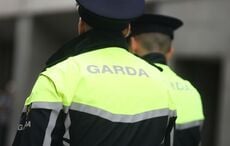New RTÉ documentary "Reprisals" explores Britain's history in Ireland through the story of the Black and Tans' murder of a 24-year-old pregnant mother in 1920.
A terrible atrocity committed against a pregnant young mother outside her family home in Co Galway during the War of Independence is the subject of a gripping new radio documentary which shines a light on one of the darkest periods of British rule in Ireland.
Almost one hundred years on from the murder, documentary-maker Orla Higgins has finally told the world about the killing of Eileen Quinn (24), who was seven months pregnant and standing beside her three young children when she was gunned down by the notorious Black and Tans.
The appalling crime on November 1, 1920, devastated the community throughout South Galway, inspired two poems by William Butler Yeats, and prompted Lady Gregory to write six campaigning articles in the London press to alert British people to the atrocities being carried out in their name in Ireland.
Now, 99 years after Eileen’s appalling death and the subsequent cover-up, the documentary comes as a very timely reminder of Britain’s terrible history in Ireland; as tensions rise over Brexit and the prospect of a return of a hard border.
Read more: The first political assassination of Ireland's War of Independence

Eileen Quinn's house in Co Galway. Image: Orla Higgins.
All of Ireland was under British rule in 1920 and the War of Independence was underway when Eileen was gunned down by the Black and Tans as they made their way from Gort back to their barracks in Galway City.
Her husband Malachy was away at the fair in Gort and Eileen was standing with her children, Eva (4), Alfie (2) and Tessie (1), perhaps awaiting his return, when the British forces in trucks approached her house on the main Gort to Galway road.
A verdict of “death by misadventure” was recorded; Higgins says that the cover-up by the British authorities had begun even before she passed away. Local women had tried valiantly to save both Eileen and her unborn child and it took her eight hours to die a painful death.
Higgins has called the documentary ‘Reprisals’ because there was a spate of tit-for-tat killings between the British forces and Irish rebels in South Galway at the time.
It was believed locally that Eileen was murdered in retaliation for the killing of a Royal Irish Constabulary (RIC) man, Constable Horan, in the area just two days earlier.
Constable Horan, a father of three young children, was shot dead in an IRA ambush in the same area. Just days after Eileen’s killing, the British forces took two South Galway brothers from their home and tortured them – dragging them along the road, tied to the back of a truck – before mutilating them and dumping their bodies.
People in the area still talk about the murders of Eileen Quinn and the Loughnane brothers and a local hall is named in their honor.
The Black and Tans were particularly despised across Ireland as they were auxiliaries from the British Army who were transferred to Ireland earlier in 1920 to help the RIC put down the Irish rebellion.
Orla Higgins had grown up hearing stories about Eileen Quinn but also noticed how older members of her family were reluctant to talk about the murder. She wanted to ‘humanize’ her through her radio documentary for RTÉ, the national broadcaster of Ireland.
Read more: The real history behind The Black and Tans in Ireland

Documentary-maker Orla Higgins in New York. Image: Orla Higgins.
“Somebody was dramatically murdered in my own family and I always wanted to find out more about it, rather than to just see Eileen as a footnote in history,” Higgins told IrishCentral.
“She was pregnant with three kids standing outside her house. I was curious about it and wanted to hear more about it. So it had been at the back of my mind to do a documentary about her for some time. RTÉ was interested in family stories from the War of Independence, particularly as shutting down was the way people dealt with and coped with the trauma.”
Higgins pointed out that the War of Independence, which ended with a truce in 1921, was followed by a bitterly divisive Civil War that tore families and communities apart. Instead of dwelling on terrible murders, people just had to move on.
“Eileen would have been my mother’s aunt. I wanted to bring her to life through the documentary. The more I researched it, the more I realized it was a replica of other stories from around the country. Once I did start my research, I was amazed at what I found.”
Writing anonymously, Lady Gregory, who lived near Eileen’s home at Coole Park, penned six powerful articles in The Nation to alert people in Britain to the atrocities being carried out in Ireland. One of her articles dealt directly with Eileen’s murder.
Higgins found three weeks of comprehensive reports on the murder and subsequent funeral in the archives of the local newspaper, the Connacht Tribune.
“It was brave journalism. There were no bylines. For obvious reasons, the names of the reporters could not be published. But to get to see the papers, to be able to turn the pages and see this story jumping off the pages, really brought Eileen’s story to life.”
She was amazed by the bravery of the priest in Gort, Fr John Considine, who was called to the house on the evening of her murder. Eileen had told him that she was shot by British forces on a truck as they passed by her house. Fr Considine, who administered the last rites to Eileen, strongly condemned the murder from the altar.

A plaque in memory of Eileen Quinn in Gort. Image: Orla Higgins.
The ‘Reprisals’ documentary includes interviews with the current occupants of Eileen’s home and looks at the terrible impact it had on her husband, Malachy.
He used to go to bed early when the family members sat down to watch a ‘Western’ on television on a Sunday night, as he would be upset by the sound of gunshots. He hardly ever talked about his wife’s murder.
A grandson of Eileen’s, human rights lawyer Gerard Quinn, had researched the murder thoroughly and looked at how the killing traumatized the next generation; just as people in Northern Ireland are still experiencing trauma from ‘The Troubles.’
One of the themes of ‘Reprisals’ is forgiveness, as the family members did not hold grudges against English people despite their awareness of the cover-up of her murder and the failure of the British authorities to investigate it properly.
Higgins believes there are lessons to be learned from the trauma of Eileen’s senseless killing almost a century on from her death.
“The Black and Tans were only in Ireland for a few years, but it was a very intense period and they were here long enough to leave a terrible mark on people,” she says.
“A lot of people have a cause and people can get more and more entrenched in their views. It’s so timely now, with Brexit, to look back on that period of Irish history and the deep divisions and hatreds. If we start entrenching ourselves again, defaulting to these positions, I don’t think it helps us to move on.”
You can listen to the ‘Reprisals’ documentary from anywhere in the world by downloading the documentary from the following link: https://www.rte.ie/radio1/
Ciaran Tierney won the 2018 Irish Current Affairs and Politics Blog of the Year award. Find him on Facebook or Twitter here. Visit his website here - CiaranTierney.com. A former newspaper journalist, he is seeking new opportunities in the digital world.
This article was submitted to the IrishCentral contributors network by a member of the global Irish community. To become an IrishCentral contributor click here.




Comments